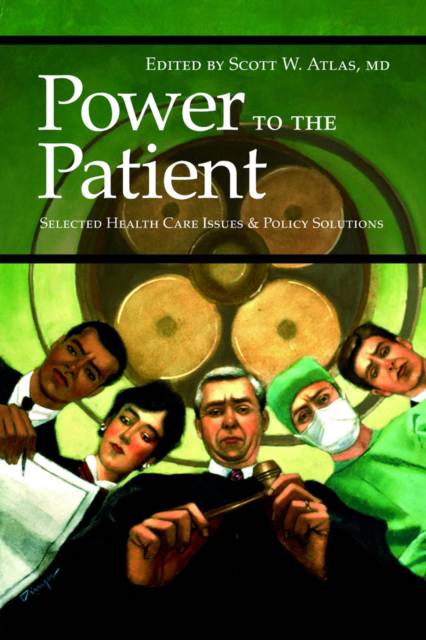
- Afhalen na 1 uur in een winkel met voorraad
- Gratis thuislevering in België vanaf € 30
- Ruim aanbod met 7 miljoen producten
- Afhalen na 1 uur in een winkel met voorraad
- Gratis thuislevering in België vanaf € 30
- Ruim aanbod met 7 miljoen producten
Power to the Patient
Selected Health Care Issues and Policy Solutions Volume 532
Omschrijving
HOW CAN WE BEGIN TO CONTROL THE RISING COSTS OF HEALTH CARE?
When calculated on a per capita basis, the United States has the costliest health care system in the world. The debate rages on over how to cope with the rising costs of medical care, with proposed solutions ranging from a single-payer system with broad government control to loosely defined market-driven plans. Power to the Patient: Selected Health Care Issues and Policy Solutions looks at three key elements of health care costs--third-party payment, the realities of growth in medical spending, and the medical liability system--and offers thoughtful, realistic suggestions to help stem the tide of rising expenses for everyone.
Scott W. Atlas proposes changing the nature of health care insurance so that patients make direct payments to their health care providers. The critical focus, he says, should be on empowering the patient by putting consumers in charge of their money and letting them make cost-conscious decisions about spending health care dollars.
Daniel P. Kessler reviews the current debate over the medical liability system, examining three areas of proposed reforms: limits on liability, "patients' bill of rights" proposals, and alternative reforms such as medical practice guidelines, dispute resolutions, and no-fault insurance.
Mark V. Pauly looks at the reasons why real medical spending has increased and concludes that it is virtually impossible to lower costs without lowering quality of care.
Specificaties
Betrokkenen
- Uitgeverij:
Inhoud
- Aantal bladzijden:
- 62
- Taal:
- Engels
- Reeks:
Eigenschappen
- Productcode (EAN):
- 9780817945923
- Verschijningsdatum:
- 25/02/2005
- Uitvoering:
- Paperback
- Formaat:
- Trade paperback (VS)
- Afmetingen:
- 163 mm x 231 mm
- Gewicht:
- 131 g

Alleen bij Standaard Boekhandel
Beoordelingen
We publiceren alleen reviews die voldoen aan de voorwaarden voor reviews. Bekijk onze voorwaarden voor reviews.










